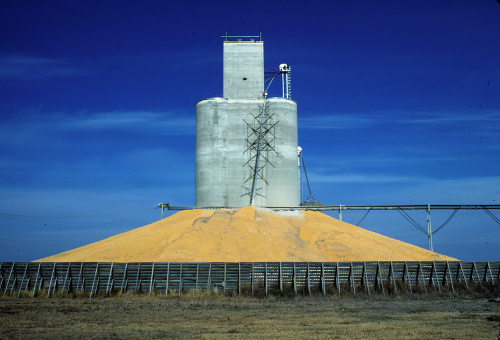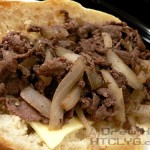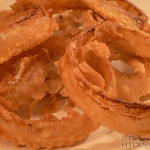Fans of Michael Pollan are familiar with the phrase “corn people“:
Descendants of the Maya living in Mexico still sometimes refer to themselves as “the corn people.” The phrase is not intended as metaphor. Rather, it’s meant to acknowledge their abiding dependence on this miraculous grass, the staple of their diet for almost 9,000 years.
For an American like me, growing up linked to a very different food chain, yet one that is also rooted in corn, not to think of himself as a corn person suggests either a failure of imagination or a triumph of capitalism.
Whatever the failing is, Pollan is right that most Americans don’t realize how dependent our food system is on corn. Two east-coast college friends, Ian Cheney and Curt Ellis, heard enough about it to be interested, so they decided to go see first-hand.
Really small scale farming
Cheney and Ellis discovered that their great-grandfathers had lived a few miles apart in a small rural county in northern Iowa. They went there, to Greene, Iowa (pop. 1015) to lease one acre of land and grow corn on it. To get an idea how incredibly small this is, when they rent a combine to plant their seed they’re done in 18 minutes. That’s not a typo.
King Corn works in the small moments like that, where you get a glimpse of the scale of modern agriculture. If most of what you know about farming comes from watching Green Acres, you might as well watch kids playing “store” and say you understand Walmart.
For people who follow the politics of food and agriculture, there’s nothing new or terribly surprising in King Corn. What was somewhat unexpected was how nonchalant several farmers were with admitting that they grow what the government pays them to grow … and that they rarely eat anything that originated in their own fields.
From the coverage on cable news, I would have expected the farmers to be a mixture of proud and defensive about what they do, and about their independence. I didn’t see any of that.
Beef is corn, too
The other thing I wasn’t expecting in a movie about corn was the section on beef production. The high subsidies on corn have made it cheaper to feed corn to cattle in confinement operations than to let them graze grass. But cows aren’t adapted to a diet of corn — though scientists are hard at work on “solving” that “problem”.
Until then, cattle are fed steady diets of antibiotics along with their corn. And again the movie shows someone acknowledging the poor quality of the meat coming out of the system … while sitting in a McDonalds parking lot eating a burger. Sometimes it’s not that we don’t know any better, it’s that we just don’t care.
They get it, but they’re stuck
The biggest question King Corn answered for me is, “Don’t the farmers understand how the system isn’t in their best interests?” The answer is, of course they realize that. But they feel trapped by circumstance.
In another small moment that brought home that sense of helplessness, the movie closes with their landlord pointing into his living room, saying that he was born in that very room. Then the scene cuts to a foreclosure sale, where the filmmakers get to buy “their” acre. And they return it to pasture.
For a ton more detail, statistics and links, check out the PBS site for the film.












